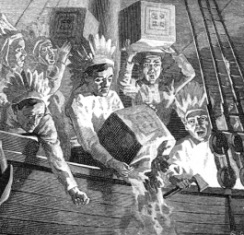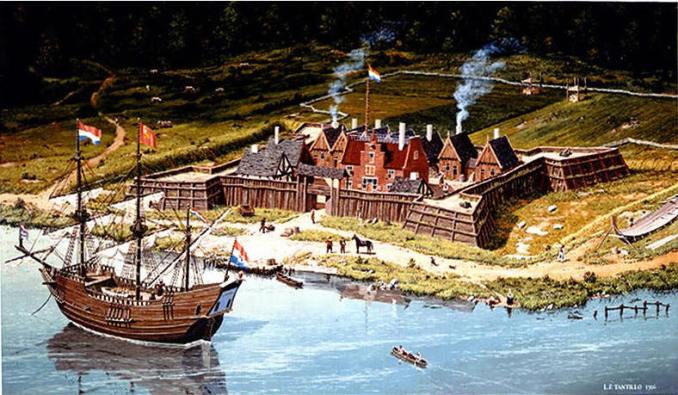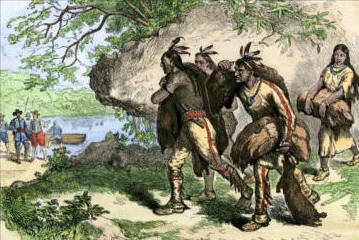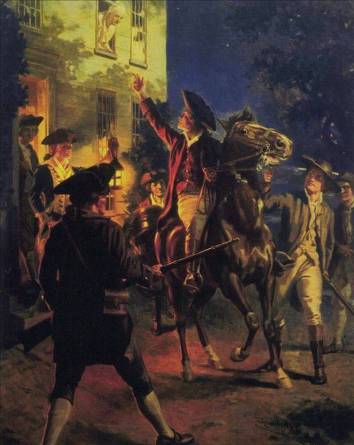The War For Independence - the Background Causes
|
Since
the founding of the
first two colonies,
the English holdings
in America had grown
in number, size and
wealth, until in
1763 they stretched
along the coast of
the Atlantic. The
majority of people
who settled there
were English. Many
of the settlers had
come to America to
escape political or
religious
persecution, and
class restrictions
in Europe. They were
freedom-loving
people. For ten years the American colonists resisted the efforts of their king to tax them or otherwise limit their freedom. It was at this time that the English government decided to tighten the reigns. In 1763, King George III forbade further emigration to the West; in 1761, a tax was put on sugar from the West Indies and steps were taken to reduce smuggling of goods into the colonies with out paying import taxes; in 1765 came the stamp tax on newspapers and documents. King George III in his coronation robes |
 |
|
|
Colonists galvanized around the position that the Stamp Act of 1765, imposed by Parliament of Great Britain, was unconstitutional. The British Parliament insisted it had the right to tax colonists. The colonists claimed that, as they were British subjects, taxation without representation was illegal. Why should they pay taxes passed by a Parliament, in which they had no politicians voted in to represent them? Many in those colonies believed the lack of direct representation in the distant British Parliament was an illegal denial of their rights as Englishmen...and unconstitutional. |
3.
A popular slogan in the
colonies at the time was: "No
Taxation Without Representation!"
Explain what this slogan
means, and why the tax laws being passed in
Britain greatly angered many of the colonists.
In
1770,
in the town of
Boston, in
Massachusetts,
tensions caused by the
Stamp Tax and the
economic effects of the
taxes in general caused
a riot. This ended with
British soldiers killing
several of the
colonists. News of this
event, dubbed the
'Boston Massacre',
spread through out the
colonies strengthening
anti British sentiments.
|
In
1773
another tax
known as the Tea
Act sparked a
further large
protest against
the British.
Colonist
organised a
boycott against
buying directly
taxed British
tea.
This led to the Boston Tea Party, where colonists dressed up as native Americans, raided English ships in Boston harbour and threw the British owned tea into the ocean. News of the event and the punitive reaction by the British Parliament, further aggravated discontent in the colonies with British rule and stimulated the growing desire for American independence. |
 |
 Independence Hall, Philadelphia, where the Declaration of Independence was signed. |
The British
government continued
to pass laws that
restricted the
American Colonists,
and imposed many
taxes that the
Colonists thought
were unfair. The
British adopted
stern measures to
enforce obedience to
its authority,
especially in
Massachusetts.
The American colonists formed a unifying Continental Congress and a shadow government in each colony, though ostensibly claiming loyalty to the monarch and a place in the British Empire. In 1774, representatives of all the original colonies except Georgia attended a meeting in Philadelphia to consider united action against the British actions. |
| This gathering, known as the first Continental Congress, adopted a declaration of rights and grievances and called for halting trade with England unless the grievances were redressed. The declaration did not mention independence. | |






